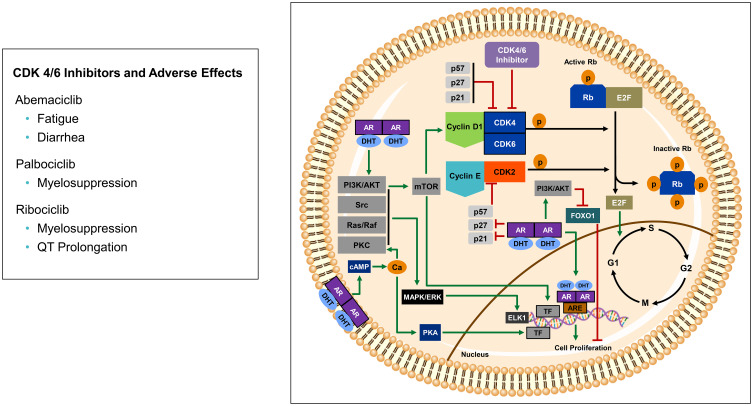Figure 1.
Androgen regulation of cell cycle and CDK4/6 pathway. Genomic AR signaling activates androgen response elements (ARE) to promote cell proliferation. Non-genomic AR signaling acts via membrane bound AR and activated cytosolic AR by activating PI3K/AKT, Src, Ras/Raf, and PKC to regulate MAPK/ERK activating ELK1 transcription factor to promote cell proliferation. Non-MAPK/ERK-dependent AR signaling includes membrane bound AR increasing intracellular calcium activating PKA and transcription factors (TF) to also promote cell proliferation. PI3K/AKT activates mTOR which leads to increase cyclin D1, in addition, PI3K/AKT phosphorylates the transcription factor FOXO1 which causes cytosolic degradation preventing FOXO1’s tumor suppressor effects. Cytosolic AR also down-regulates p21 and p27, cyclin-dependent kinase inhibitors that negatively regulate cell cycle progression. Cyclin D1 activates CDK4/6 which leads to phosphorylation of the hypo-phosphorylated active Rb, generating a hyper-phosphorylated inactive Rb state. When Rb is hyper-phosphorylated, the activating transcription factor E2F is released and enters the nucleus to promote transition from G1 (pre-DNA synthesis) to S phase (DNA synthesis). CDK4/6 inhibitors block this pathway by preventing phosphorylation of Rb, thereby keeping Rb in its active tumor suppressor state, and not allowing the activating E2F to be released to enter the nucleus.

